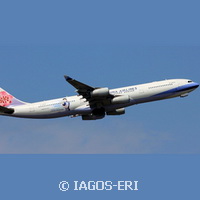Airlines help researchers understand global climate change
Commercial aircraft are now being used to collect data which helps scientists to measure greenhouse gases, aerosols and cloud particles. This allows the collection of observational data on a scale and in numbers impossible to achieve using research aircraft alone. The IAGOS-ERI project ('In-service Aircraft for a Global Observing System - European Research Infrastructure') has developed high-tech instruments for regular in-situ measurements of atmospheric data. This input is essential for climate research, emissions monitoring, weather prediction and air quality forecasting. The project, with EU-funding of over EUR 3 million, builds on 20 years of scientific and technological experience gained from previous EU-supported research projects: MOZAIC ('Measurement of Ozone and Water Vapour on Airbus in-service Aircraft'), and CARIBIC ('Civil Aircraft for the Regular Investigation of the Atmosphere Based on an Instrument Container'). This has enabled the project to tap into a growing community of research institutions and airlines, within an international consortium of 15 partners. But the plan is to go global. IAGOS-ERI aims to operate a distributed infrastructure for long-term observations of atmospheric composition. This will be achieved thanks to a fleet of 10-20 long-range in-service aircraft operated by recognised airlines. The team is keen to attract more airlines to use the IAGOS-ERI instruments, and to set up a global collaboration. This would help scientists to take the project to another level in understanding air quality and atmospheric changes around the world. Dr Andreas Volz-Thomas from the Institute for Energy and Climate Research of Forschungszentrum Jülich (GmbH) in Germany, and leading the research group, says: 'We have already installed IAGOS equipment on the airplanes of Lufthansa and China Airlines. Other installations will occur on Air France, Cathay Pacific and Iberia Airlines. By the end of this year, five aircraft will have our instruments installed.' He points out that meeting the aviation safety standards and research demands presents a great engineering and scientific challenge. Dr Volz-Thomas explains: 'We have just returned from Malta, where we tested new instruments on a Lufthansa airplane for safe operation. Every six months the equipment is replaced on the airplane for maintenance and quality assurance. The data on ozone and carbon monoxide are analysed in France, while data on nitrogen oxides, water vapour and aerosol are analysed in Germany, and cloud particle measurements in the United Kingdom. So it is quite a complex process. But by doing this we can maintain a comprehensive database for climate research and air quality.' The project will end later this year, but through national funding, IAGOS-ERI will continue their valuable work monitoring the atmosphere, including developing novel atmospheric observation systems which can be installed on a range of aircraft models.For more information, please visit: IAGOS-ERI http://www.iagos.org/ Project factsheet Forschungszentrum Jülich http://www.fz-juelich.de/portal/EN/Home/home_node.html
Countries
Germany



